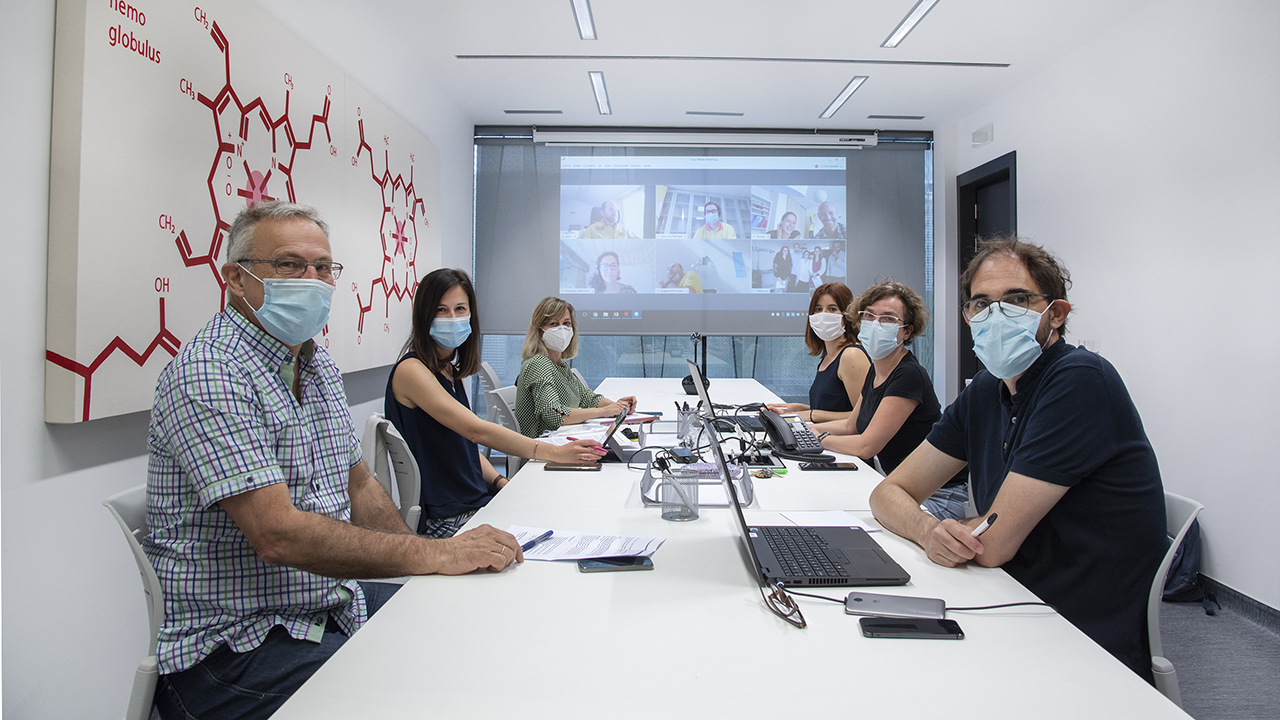After working exclusively on COVID-19 disease control in recent months, the professionals at the SNS-O went back to work on the EGALURG Project with an online meeting organized by Navarrabiomed.
On 3 June 2020, Navarre organized the first videoconference meeting of the cross-border cooperation network EGALURG, whose aim is to guarantee access to health care in emergency and catastrophic situations in the regions on both sides of the Pyrenees in France, Andorra and Spain and on equal terms.
The professionals at the Navarre Health System-Osasunbidea (SNS-O) will work in coordination with experts from the regions of Occitanie, Nouvelle-Aquitaine and Catalonia. The Navarrabiomed research center, a member of the EGALURG network, facilitated the connection between these professionals.
The EGALURG network is led by Toulouse University Hospital and its partners include Bayonne Hospital and Emergency Medical Services of Catalonia, in addition to Navarrabiomed. The network is being developed within the framework of European Interreg Program V-A Spain-France-Andorra (POCTEFA 2014-2020). It officially started its activity in November 2019 and has a duration of 30 months. To date, two partner meetings have been organized: the first, on 19 December in Toulouse, and the second, the one held yesterday as a videoconference in compliance with the national de-escalation plan.
The EGALURG consortium will work on improving health care throughout the Pyrenees to prevent the border from becoming a legal and administrative hurdle, and to promote interregional cooperation in health care. The initiative also focuses on the coverage provided to geographically isolated towns and people in emergency and catastrophic situations.
To achieve such an improvement in health care, EGALURG will work in the coming months on harmonizing protocols for patient care in order to anticipate and manage the medical equipment required. It will also develop innovative tools for increasing efficiency in health care by preventing different systems and languages from becoming an obstacle. Records will be kept in each region and a common IT platform for assessment and research will be set up based on epidemiological data.
EGALURG in Navarre
The Navarre work group will develop and implement a database on characteristics of severe injuries and an operating inventory of common cross-border resources. It will also coordinate the network’s communication activities by developing different activities and coordinating all the agents in the regions involved.
Given the current situation caused by COVID-19 disease, EGALURG has postponed a number of face-to-face events and training sessions, which will prepare for and guarantee excellent collaboration between professionals. The team trusts that by next year it will be possible to organize simulation events and stays. “Simulation is key because it enables health care personnel to train in locations with a context like the ones found in emergency and catastrophic situations. We hope to be able to reschedule the activities planned and, by 2021, hold meetings to share protocols and good practices”, said Arantxa Ibarrola Segura, the manager of the project in Navarre.
The total budget to carry out EGALURG comes to €2,343,192, of which €1,523,075 (65%) have been co-funded by the European Regional Development Fund (ERDF) through Interreg Program V-A Spain-France-Andorra (POCTEFA 2014-2020). The goal of the POCTEFA program is to strengthen the economic and social integration of the Spain-France-Andorra cross-border area. Its help is focused on developing cross-border economic, social and environmental projects through joint strategies in favor of sustainable regional development.


